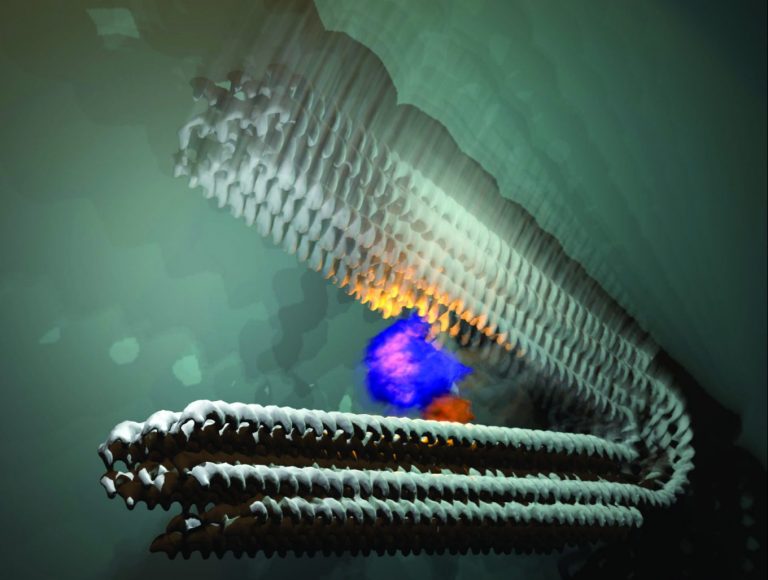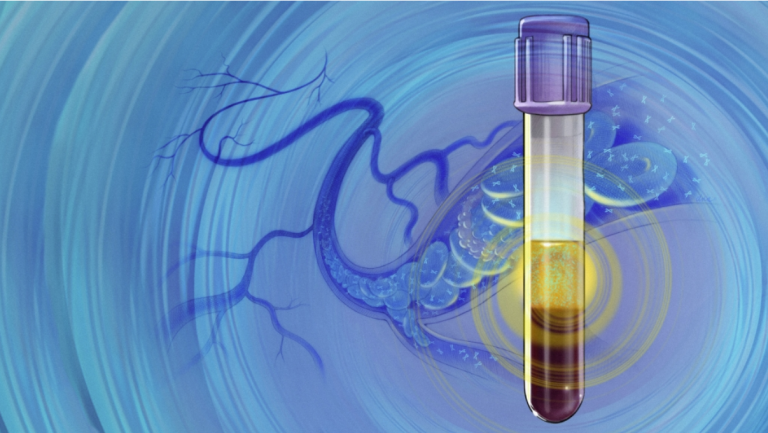Mats Ljungman, Ph.D., awarded watershed $3.7 million grant from NIH for KLIPP cancer therapy study
We are thrilled to announce that Mats Ljungman, Ph.D., Co-Director of the Center for RNA Biomedicine at the University of Michigan, has just been awarded a $3.7 million grant from the National Institutes of Health (NIH) for the purpose of continuing his groundbreaking work with precision-targeting KLIPP cancer therapy – the project’s highest funding by far to date.
Dr. Ljungman, Professor of Radiation Oncology, Medical School and Professor of Environmental Health Sciences, School of Public Health, invented the innovative “split enzyme” CRISPR-based approach he named KLIPP – a Swedish word which means “cut” and “opportunity” – to specifically target structural variant junctions, or SVJs, which are ubiquitous to all cancers, as a vulnerable lynchpin in bladder cancer.
The goal of this project is to extend previous studies and further test the efficacy of KLIPP in mouse models using several human and mouse cancer cell lines. Money will be allocated to Dr. Ljungman who will lead the new study as principal investigator (PI), together with a trans-disciplinary team of four co-investigators: Phillip Palmbos, M.D., Ph.D., Anna Schwendeman, Ph.D., Thomas E. Wilson, M.D., PhD., and Nils Walter, Ph.D.
In earlier studies, Ljungman and his team showed that KLIPP specifically and exclusively killed cultured tumor cells. The next step was to test the efficacy of the approach in a mouse model for bladder cancer. The KLIPP reagents were encapsulated into lipid nanoparticles and delivered via a catheter directly into the bladders of the mice where the tumors were growing. “We clearly observed tumor-specific killing, but the tumors were so aggressive that in the end we were not able to eliminate them. We learned that the lipid nanoparticles will not reach all cells in a solid tumor and would probably work better if used while tumors are smaller or following surgical resection”, Ljungman concludes. “That is where this grant will be so helpful in further testing KLIPP and to explore innovative ways to deliver this personalized medicine to tumors.
The KLIPP technique involves using guide RNA molecules to bring two CRISPR modules together by binding DNA sequences flanking cancer-specific SVJ. This will activate the complex leading to the cleavage of the chromosome, forcing the cancer cells into apoptosis, or “death state,” while leaving normal cells intact. Furthermore, the real takeaway Ljungman and his colleagues hope for is that since SVJs are omnipresent in all cancer cells, the potential for KLIPP to become a platform precision cancer therapy holds great promise.
As Ljungman emphasizes, “This is an unequivocal endorsement of the KLIPP approach by cancer experts, and solid encouragement to continue our work. The current bladder cancer therapies are extremely limited, and our ultimate aim is to advance this study to a clinical trials phase at Michigan Medicine. We envision that for clinical use we will rapidly manufacture personalized KLIPP medicine for each patient through our M-RNA Therapeutics initiative.”About the Center for RNA Biomedicine: In 2016, The Biosciences Initiative (BSI) at the University of Michigan, awarded $132.7 million to support nine major Scientific Research Initiative (SRI) programs. Our vision is to build a synergic community and empower collaborations between RNA researchers to help streamline the discovery of novel, individualized disease targets; and establish a system of in-house RNA production that would enable U-M investigators to produce and screen therapeutics rapidly and cost-effectively. To learn more, visit: https://rna.umich.edu/



